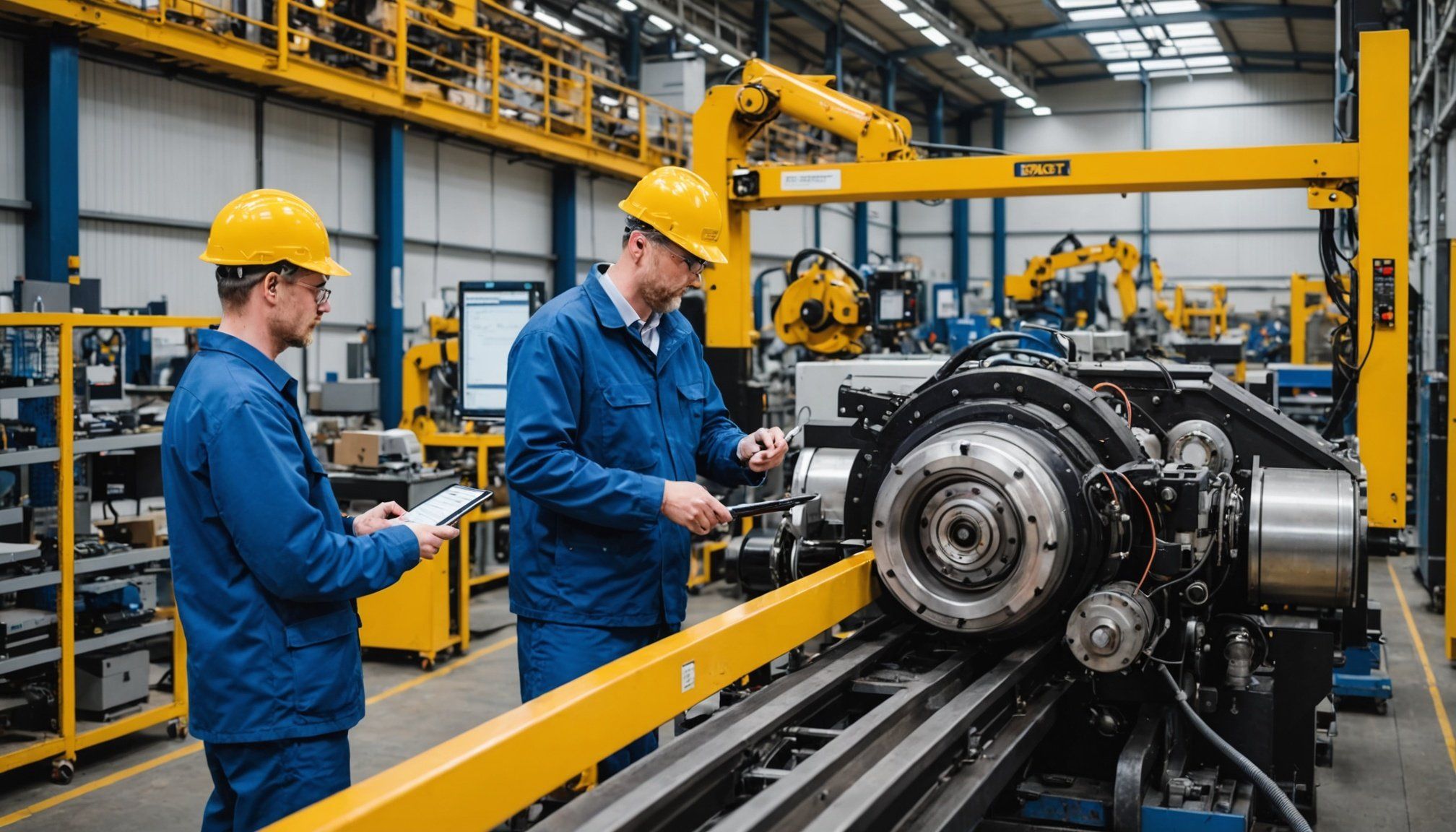Current Challenges in UK Manufacturing Supply Chains
The challenges in supply chain forecasting are particularly pressing for UK manufacturers. One of the primary UK manufacturing issues is navigating disruptions caused by global events such as Brexit and the COVID-19 pandemic. These events have significantly impacted supply chain management difficulties, leading to delays and increased costs. The unpredictability of such events makes accurate forecasting crucial yet challenging for manufacturers.
Moreover, the complexity of global supply chains means that UK manufacturers must deal with inconsistent supply and demand patterns, which can escalate supply chain inefficiencies. As a result, companies struggle to maintain a balance between their inventory and production schedules.
Additional reading : Top Strategies for Thriving Business Growth in Challenging Times
Furthermore, specific challenges arise in data analysis and prediction. Manufacturers often face difficulties in collecting and analysing large volumes of data to improve their supply chain forecasts. The lack of structured and reliable data exacerbates supply chain management difficulties, hindering precise predictive analytics and strategic planning.
Meeting these challenges requires advanced technological interventions like improved data infrastructure and predictive tools. The solution lies in better data handling capabilities and the adoption of predictive analytics to mitigate UK manufacturing issues, enhancing the overall resilience and efficiency of supply chains.
In the same genre : Ultimate Strategies to Safeguard Your UK Fintech Startup: The Definitive Handbook
Machine Learning Applications in Supply Chain Forecasting
Machine learning for forecasting is transforming the landscape of supply chain management. By harnessing the power of predictive modeling, manufacturers can anticipate demand fluctuations with greater accuracy. This enables companies to optimise inventory, reducing the risks of overstock and shortages. Consequently, manufacturers can maintain more efficient production schedules.
Demand Forecasting
Accurate demand prediction utilises techniques like regression analysis and neural networks. Historical data plays a pivotal role in building reliable models, capturing trends and patterns over time. Incorporating external factors, such as economic indicators and market trends, enhances these models, allowing businesses to adapt promptly to changes.
Inventory Optimization
Leveraging machine learning for inventory optimization involves using algorithms to pinpoint optimal stock levels. Predictive analytics analyse sales data, consumer behaviour, and seasonal trends to recommend precise inventory adjustments. This ensures real-time tracking and alignment with current demand, ultimately saving costs and enhancing service levels.
Supplier and Logistics Management
In supplier and logistics management, AI-driven insights support supplier selection by evaluating performance and reliability. Machine learning is also pivotal in optimising distribution routes, considering traffic, weather, and fuel costs. Predictive maintenance identifies potential equipment failures before they occur, mitigating disruptions and maintaining smooth operations.
Overview of Advanced Machine Learning Techniques
Machine learning applications are pivotal in transforming supply chain forecasting, offering a variety of techniques that enhance predictive capabilities. Central to this transformation are machine learning algorithms such as supervised learning, which relies on labelled datasets to train models, and unsupervised learning, which identifies patterns without pre-existing labels.
Crucially, predictive analytics are instrumental within this context, enabling manufacturers to anticipate shifts and respond with agility. Algorithms—such as decision trees for classification, regression analysis, and clustering techniques—serve as the backbone of these predictive solutions.
The success of AI in manufacturing hinges on data quality and availability. Accurate and comprehensive data sets are essential for building effective models, as they allow AI systems to interpret and predict with precision. Inadequate data can lead to skewed results, undermining the reliability of AI-driven insights.
The deployment of machine learning in supply chains not only optimises operations but also offers manufacturers strategic advantages by improving forecasting accuracy and responsiveness. This technological advancement, when applied correctly, ensures manufacturers can maintain competitiveness by efficiently managing their supply chains in a dynamic market landscape.
Case Studies of Successful Implementation
In the realm of manufacturing, several UK companies have embraced machine learning applications to refine their operations. Real-world examples highlight the transformative impact of such technologies on demand prediction and supply chain management. One prominent case involves a leading UK automotive manufacturer that integrated machine learning for predictive analytics. This integration led to a remarkable 30% enhancement in forecasting accuracy, significantly boosting their operational efficiency.
Another striking example involves a major electronics firm that implemented machine learning to optimise its inventory management. This adoption resulted in a 15% reduction in stockouts and overstock, effectively minimising excess costs and improving customer satisfaction.
These case studies in manufacturing underscore the importance of leveraging AI-driven insights for strategic decision-making. By harnessing advanced data analytics and aligning them with their supply chain objectives, these companies have consistently outperformed their counterparts, achieving substantial improvements in efficiency.
Lessons from these success stories stress the need for a collaborative approach and ongoing investment in technology. Emphasizing skilled personnel training and maintaining robust data infrastructures are crucial strategies shared by industry leaders to continue benefiting from machine learning advancements.
Best Practices for Implementing Machine Learning
To successfully navigate the complexities of machine learning integration, UK manufacturers must adhere to implementation strategies that emphasise the selection of suitable tools and platforms. Evaluating the specific needs and constraints of the organisation is vital to choose systems that align with operational objectives. Implementing the wrong system can lead to inefficiencies, so precision in choice is paramount.
Cross-department collaboration is another cornerstone of successful machine learning adoption. Engaging stakeholders from diverse sectors of the business—such as supply chain, IT, and management—ensures that the integration process is smooth and that the technology serves the broader organisational goals. This cooperative approach fosters a well-rounded application of machine learning principles.
It is essential to develop a skilled workforce capable of operating advanced machine learning tools. Regular training and development initiatives can bridge the skill gap, equipping employees with the necessary competence and fostering an environment conducive to technological growth.
However, businesses should be wary of common pitfalls such as underestimating data quality requirements and over-relying on immature models. A meticulous approach to data management and model testing can help avoid these barriers to adoption, ensuring effective integration and leveraging the full potential of machine learning.
Future Trends in Supply Chain Forecasting with Machine Learning
The future of manufacturing is poised for transformation through advancements in machine learning and AI technologies. Emerging trends highlight a significant shift towards automation, with predictive analytics providing unprecedented insights. This evolution allows manufacturers to enhance their forecasting capabilities, ensuring responsive supply chain operations.
Predictive analytics trends indicate an increased reliance on real-time data integration. This development offers a granular view of the supply chain, enabling instant adjustments and improving overall efficiency. By anticipating demand patterns and potential disruptions, companies can make agile decisions, enhancing their competitive edge.
Automation, powered by sophisticated algorithms, will become more prevalent. This change reduces human error and improves consistency in supply chain processes. Manufacturers can expect improved AI in manufacturing solutions, facilitating seamless inventory management and logistics operations.
Looking ahead, machine learning is set to play an even more critical role in forecasting. With evolving data analysis techniques, manufacturers can achieve greater precision and accuracy in predictions. As machine learning technologies continue to advance, they will increasingly support strategic planning, offering robust solutions tailored to the dynamic needs of the supply chain environment. These innovations promise to redefine how manufacturing operates, ensuring long-term resilience and success.











